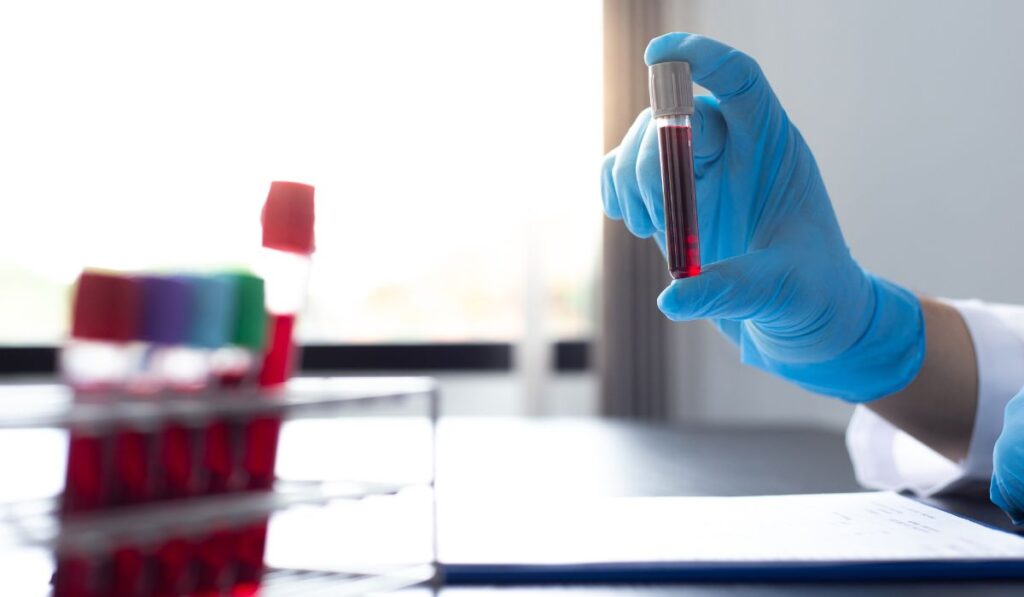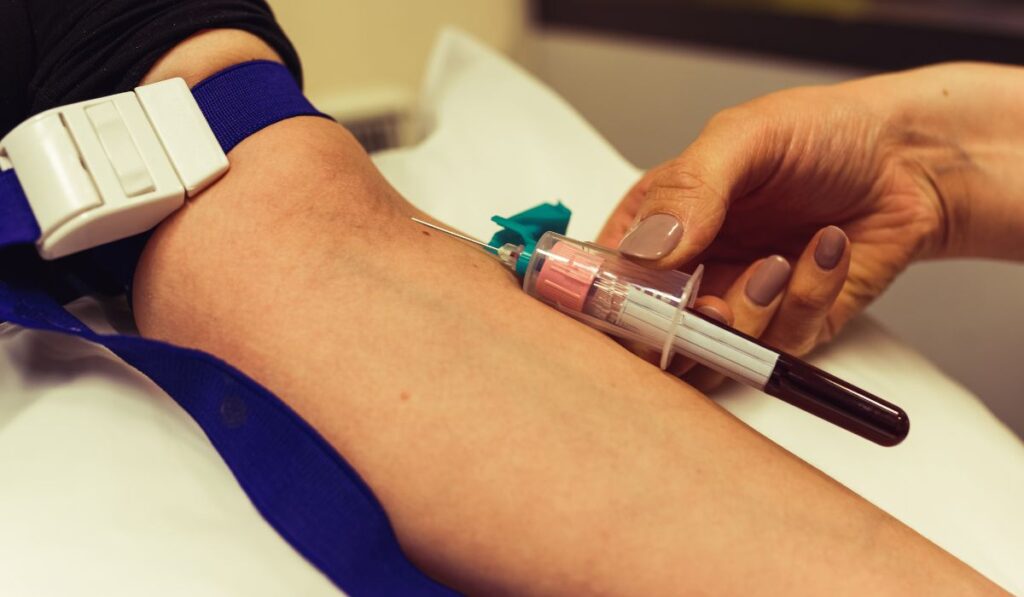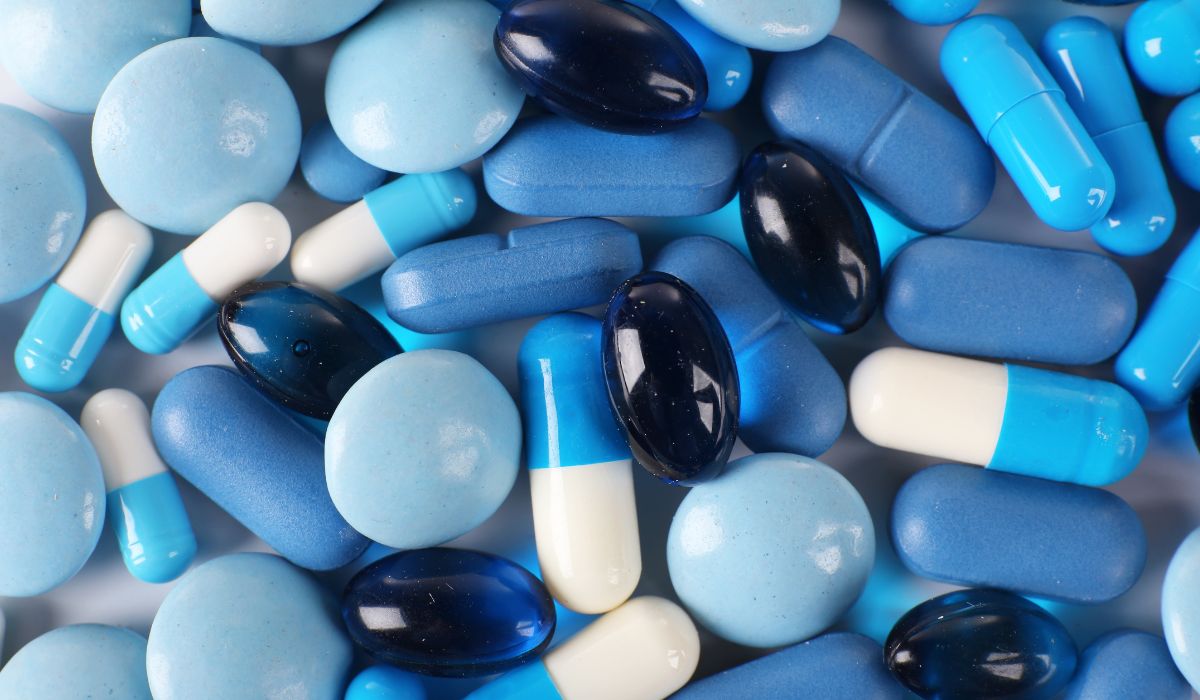
Does Duloxetine Show Up on a Drug Test?
Duloxetine is a type of antidepressant. People use it to help with anxiety, depression, and other mental health problems. But if you’re taking duloxetine and you’re going to have a drug test, you may be wondering: Will duloxetine show up?
Let’s break it down in a simple way so anyone can understand.
Clinically Reviewed by Kristine Westerdahl
What Is Duloxetine?
Duloxetine is a medication that helps with major depressive disorder, anxiety, and even pain. It is known as a reuptake inhibitor—specifically a serotonin and norepinephrine reuptake inhibitor (SNRI). That means it helps balance brain chemicals like serotonin and norepinephrine.
Doctors often use duloxetine to treat:
- Depression
- Generalized anxiety disorder
- Nerve pain
- Fibromyalgia

What Kinds of Drug Tests Are There?
Drug tests are used to check if someone has used certain controlled substances. They’re often used in rehab centers, at work, or during sports events.
The most common types of drug tests are:
- Urine test
- Blood test
- Saliva testing
- Hair test
Lynk Diagnostics, a top drug testing center for rehab facilities, uses advanced tools like:
- Immunoassay
- Chromatography
- Mass spectrometry
These tests can detect many metabolites—tiny pieces left after the body breaks down a drug.
Does Duloxetine Show Up on a Drug Test?
The answer is: not usually.
Duloxetine is not a controlled substance like amphetamine, opioid, or benzodiazepine. So, it is not typically tested for in routine drug screens.
However, there is something important to know…
Can Duloxetine Cause a False Positive?
Yes, duloxetine can sometimes cause false positives. That means the test might wrongly say you used another drug.
Some people taking duloxetine have tested positive for:
- Amphetamines
- Methamphetamine
- Phencyclidine (PCP)
These false positives usually happen in urine tests using immunoassay. More advanced tests like mass spectrometry and chromatography can clear things up.
Why Do False Positives Happen?
Your body turns duloxetine into different metabolites. Sometimes these look like other drugs in simple tests. This can lead to confusion in the lab.
Other medications that may cause false positives include:
- Ibuprofen
- Naproxen
- Pseudoephedrine (a decongestant)
- Diphenhydramine (Benadryl)
- Dextromethorphan (cough syrup)
- Trazodone
- Fluoxetine
- Venlafaxine
- Bupropion
- Sertraline
- Paroxetine
- Desvenlafaxine
- Citalopram
- Escitalopram
- Tramadol
- Methadone
All of these may trigger false positives for things like opioids, amphetamines, or barbiturates.
What Should You Do Before a Drug Test?
1. Tell the Tester About Your Medications
Always tell the person doing the drug test what prescription drugs you’re taking, including duloxetine. Bring your physician’s note or a prescription bottle.
2. Use a Reliable Testing Center
Centers like Lynk Diagnostics use high-quality tests and follow the latest law and medical guidelines. They can tell the difference between real substance abuse and a medication.
3. Ask for Confirmation Testing
If you get a false positive, ask for a more detailed test like mass spectrometry or gas chromatography. These tests are much more accurate.
What About Other Antidepressants?
Other antidepressants can also lead to false positives. These include:
- Amitriptyline
- Imipramine
- Doxepin
- Desipramine
- Mirtazapine
- Quetiapine
- Aripiprazole
Even though they are legal and helpful for mental health, they can confuse a drug test.
What Else Affects a Drug Test?
Drug test results can be affected by many things:
- Your metabolism
- The assay used
- The concentration of the substance
- The ingestion of other legal meds or analgesics (pain relievers)
- Foods or seeds like poppy seeds
- Conditions like gastroesophageal reflux disease
Even alcohol, cough syrup, or antihistamines like doxylamine can change the result.
Will Duloxetine Show Up as an Opioid?
No. Duloxetine is not an opioid or an opiate. It is not related to morphine, codeine, hydrocodone, oxycodone, methadone, or fentanyl.
Still, some tests might mistake it for an amphetamine or methamphetamine—especially if you are taking other medications too.
Can Duloxetine Affect Saliva Testing?
Saliva testing usually looks for more common drugs like THC (tetrahydrocannabinol), opioids, or benzodiazepines. Duloxetine is not a focus of saliva drug testing and rarely causes problems there.
How Long Does Duloxetine Stay in the Body?
Duloxetine stays in your system for about 5 days after your last dose. But this depends on:
- Your age
- Your liver health
- Other medications
- Your adherence to your treatment plan
How Rehab Centers Like Lynk Diagnostics Help
If you’re in a rehab center, it’s very important that your drug test results are correct. Lynk Diagnostics helps by:
- Using mass spectrometry to confirm test results
- Avoiding false positives and false negatives
- Making sure your mental health treatment is not confused with addiction
- Working with your physician to understand all your medications
Can Duloxetine Interact with Other Medications?
Yes, duloxetine can interact with many drugs. Be careful if you take:
- Monoamine oxidase inhibitors (MAOIs)
- Benzodiazepines like lorazepam or diazepam
- Stimulants like methylphenidate or phentermine
- Barbiturates
- Buprenorphine
- Decongestants
- Antipsychotics
Tell your doctor and the test center about everything you’re taking.
Final Thoughts
If you take duloxetine, you usually won’t fail a drug test. But false positives are possible. Always tell the truth about what you’re taking. If something seems wrong, ask for a better test. Lynk Diagnostics and your physician can help you avoid confusion and protect your health.

FAQs About Duloxetine and Drug Tests
Does duloxetine show up on a drug test?
No, duloxetine does not usually show up on a drug test. It is not a drug of abuse. However, it may cause false positives in certain urine tests.
Can duloxetine test positive for methamphetamine or amphetamine?
Yes, in rare cases, duloxetine can cause a false positive for methamphetamine or amphetamine, especially in immunoassay tests.
Will my rehab center know I’m on duloxetine?
Yes. If you tell your physician and drug testing center, like Lynk Diagnostics, they will take it into account and avoid mistakes.
Should I stop taking duloxetine before a drug test?
No. Don’t stop any medication without talking to your doctor. If you’re worried, let the test center know ahead of time.
What if I get a false positive from duloxetine?
Ask for a confirmation test like mass spectrometry. This test can tell the difference between duloxetine and real controlled substances.
If you’re in treatment and have questions about drug testing, Lynk Diagnostics is here to help. Accurate testing matters for your health and recovery.








